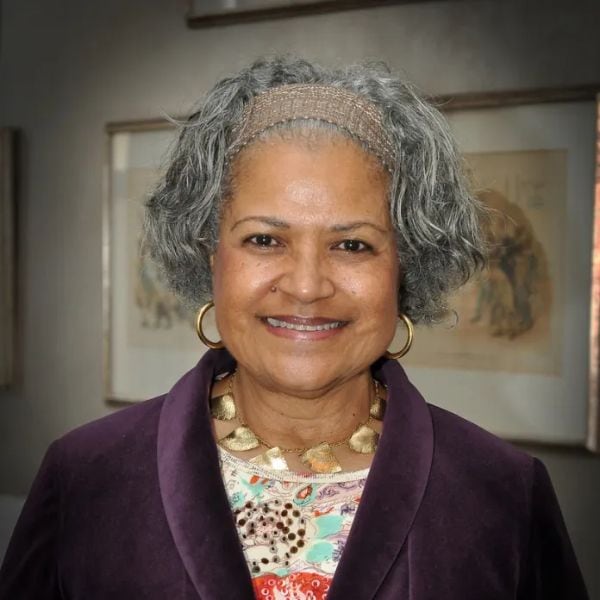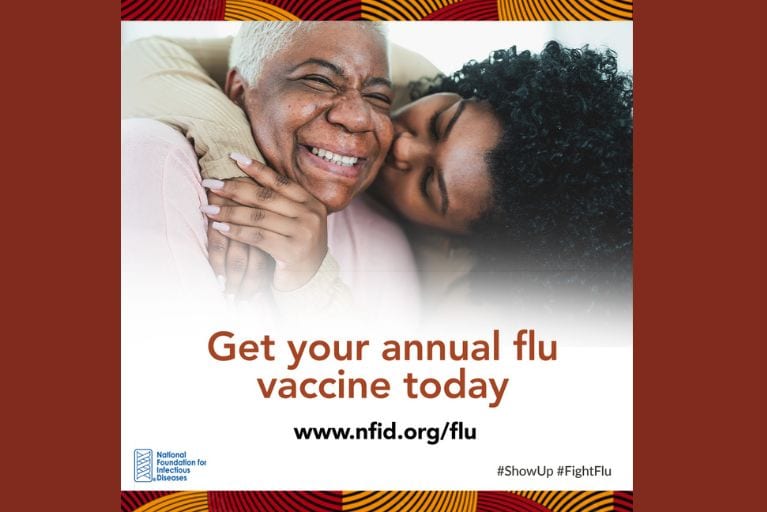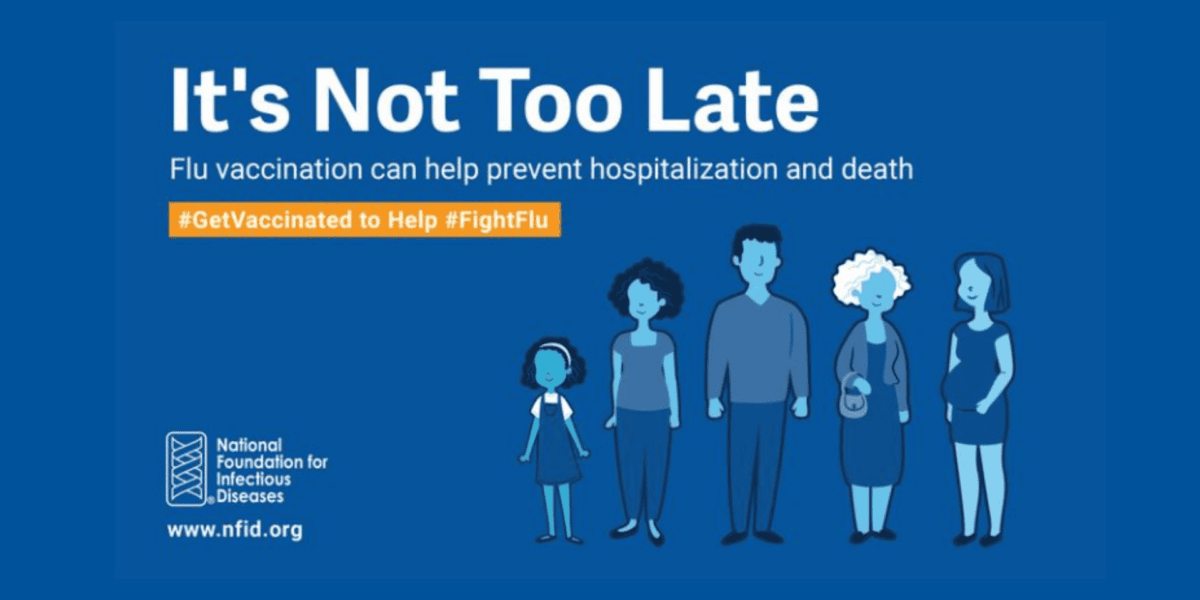


 Cultural barriers can play a role in low vaccination rates. Special thanks to Keith C. Ferdinand, MD, Gerald S. Berenson Endowed Chair in Preventative Cardiology, Tulane University School of Medicine; Daphne P. Ferdinand, PhD, RN, Executive Director of the Healthy Heart Community Prevention Project; and Tina Reddy, MS, MD/MPH candidate 2024 of Tulane University School of Medicine for this guest blog post to wrap up National Minority Health Month, on 4 ways to overcome cultural barriers to vaccine uptake.
Cultural barriers can play a role in low vaccination rates. Special thanks to Keith C. Ferdinand, MD, Gerald S. Berenson Endowed Chair in Preventative Cardiology, Tulane University School of Medicine; Daphne P. Ferdinand, PhD, RN, Executive Director of the Healthy Heart Community Prevention Project; and Tina Reddy, MS, MD/MPH candidate 2024 of Tulane University School of Medicine for this guest blog post to wrap up National Minority Health Month, on 4 ways to overcome cultural barriers to vaccine uptake.
Immunization has been one of the great advances in medicine and has saved countless lives. However, despite overwhelming scientific evidence of the benefits of vaccination against a wide range of diseases, immunization rates have historically been low among communities of color for diseases including influenza (flu) and COVID-19.
New cases of measles have recently been reported in several states across the US, including Louisiana–illustrating what can happen when immunization rates fall short of public health goals. Measles is a childhood condition that should be rare, if seen at all, in the modern era. Despite being eligible to receive the measles-mumps-rubella (MMR) vaccine, some children have not been vaccinated, due to cultural barriers, limited access to care, and vaccine refusal.
In New Orleans, the Healthy Heart Community Prevention Project (HHCPP), a non-profit corporation whose mission is to promote heart health and to eliminate disparities associated with heart disease in vulnerable communities, recognizes the connection between immunization rates and healthy hearts. A 2022 American Heart Association Task Force report highlights the role of vaccination in preventing COVID-19 and potential cardiovascular complications related to the virus. Understanding the intricate relationship between viruses, vaccines, and heart health underscores the importance of vaccination for individuals with cardiovascular diseases. Infections such as COVID-19, flu, and pneumonia can trigger inflammation, exacerbating underlying heart conditions and increasing the risk of heart attacks, strokes, and irregular heartbeats. COVID-19 is associated with an increased risk of having a heart attack or stroke, and heart attack risk is higher in the week after having the flu.
To help under-immunized communities benefit from vaccination coverage, clinicians and public health officials must tailor approaches in 4 key ways:
- Develop culturally appropriate educational materials: Community programs and public health efforts must practice cultural humility to create an environment promoting open dialogue and trusted partnerships with impacted communities. The Association of Black Cardiologists (ABC) offers culturally sensitive and patient-friendly resources including a Flu-Vaccination Decision-Making Guide (in English and Spanish), which provides fact-based information about available options while considering the patient’s values, questions, and preferences.
- Lead by example to dispel vaccine myths: Healthcare professionals should get vaccinated themselves, have informed discussions with patients, counter misinformation with evidence-based information, and enlist trusted community leaders to advocate for vaccines and boost confidence and uptake.
- Overcome language barriers: Local integrated health systems, such as Tulane clinical services, provide various services free of charge to better accommodate the diverse New Orleans community, including qualified sign language interpreters and written information in various languages for patients and families who prefer to communicate in a language other than English.
- Build relationships with community leaders: HHCPP participates on Community Advisory Boards (CABS) to glean insights from the community perspective, serving as a bridge between academic institutions, researchers, and communities. CABS provide insight and considerations into the cultural, societal, and environmental contexts of communities, enabling the tailoring of interventions to meet people where they are. They also provide input on potential barriers, steps for study completion, and strategies for sustainability, among other aspects. HHCPP also has a long history of working with local community partners such as the New Orleans Health Department and Sankofa Community Development Corporation, and national non-profit organizations including the National Minority Quality Forum, Center for Sustainable Health Care Quality and Equity, and others.
Cultural humility requires approaching disadvantaged and disparate populations with appropriate self-exploration and self-critique, combined with a willingness to learn from others.
Clinicians and public health officials must respect the beliefs and approaches to immunization of diverse communities, while simultaneously utilizing best practices to educate and motivate members of these communities to understand and welcome vaccination efforts.
Despite medical advancements, there remains a persistent mortality gap between Black and White populations in the US, largely attributed to cardiovascular disease and related conditions. Similar to what has been proposed by individuals and professional societies for the appropriate elimination of cardiometabolic and cardiovascular disparities nationwide, it is imperative that we apply evidence-based approaches to vaccination regardless of race, ethnicity, sex, gender, geography, socioeconomic status, and disability or ability.
Additional Resources
The National Foundation for Infectious Diseases (NFID) is committed to addressing health disparities, increasing health literacy, and supporting communities that are disproportionately affected by infectious diseases. Share these resources to help raise awareness among the public and healthcare professionals about the importance of disease prevention, particularly in communities of color:
- ABC Educational Resources: Culturally sensitive and patient friendly print and digital education resources on adult vaccination, COVID-19, flu, and other topics
- Flu Ready NOLA: HHCPP public health campaign that includes toolkits, graphics, videos, and social media posts to provide families with resources to better embrace evidence-based medicine supporting annual flu vaccination
- Show Up and Fight Flu Partner Toolkit: NFID toolkit to help address disparities in flu vaccination coverage and raise awareness among Black adults by emphasizing the importance of getting an annual flu vaccine
To join the conversation and get the latest news on infectious diseases, follow NFID on X (Twitter), like us on Facebook, follow us on Instagram, visit us on LinkedIn, listen and subscribe to the Infectious IDeas podcast, and subscribe to receive future NFID Updates.
Related Posts

Harnessing the Power of Local Data
NFID dashboard aims to empower stakeholders with hyperlocal data to increase US adult respiratory vaccine uptake

#ShowUp and #FightFlu
The National Foundation for Infectious Diseases (NFID) is working in partnership with Black-led and Black-serving organizations to increase awareness of the importance of annual influenza (flu) vaccination among US Black adults. Special thanks to NFID Immediate Past-President Patricia N. Whitley-Williams, MD, for this guest blog post on the critical role that annual flu vaccines play in protecting Black families and communities …

It’s Not Too Late To #FightFlu
With influenza (flu) activity now high across the US, NFID is joining the Centers for Disease Control and Prevention (CDC) in reminding everyone that it is not too late to benefit from annual flu vaccination. Special thanks to José R. Romero, MD, director of the CDC National Center for Immunization and Respiratory Diseases for this guest blog post …
